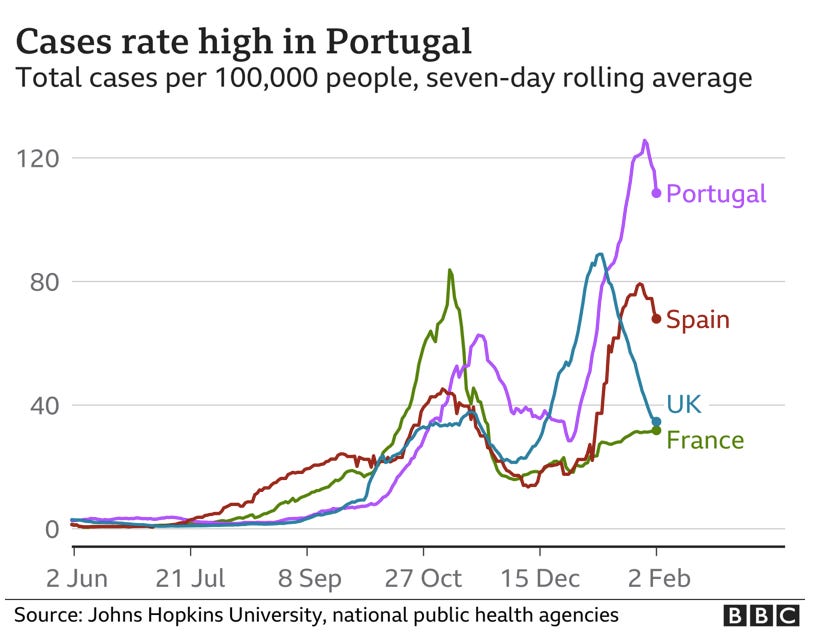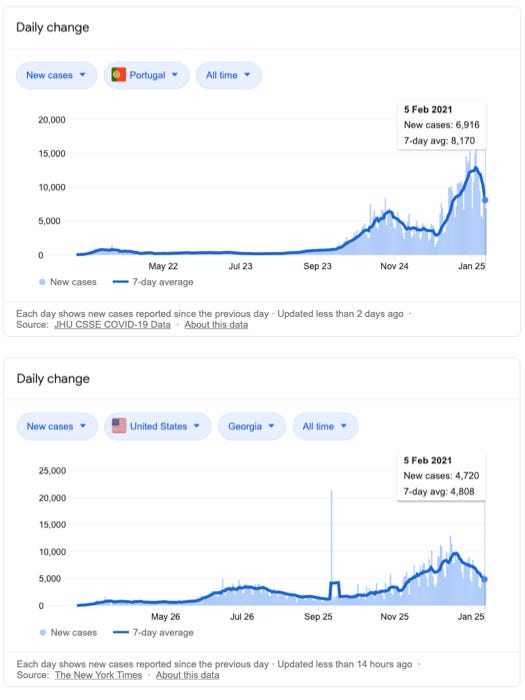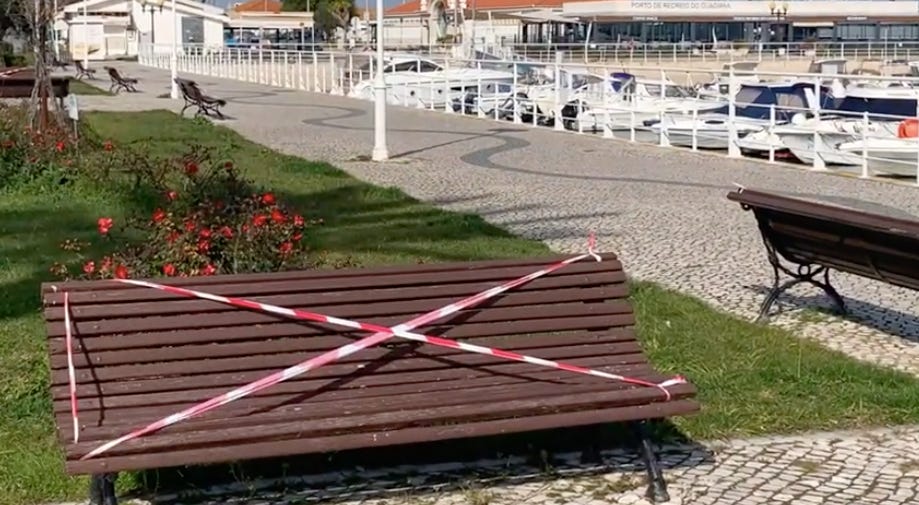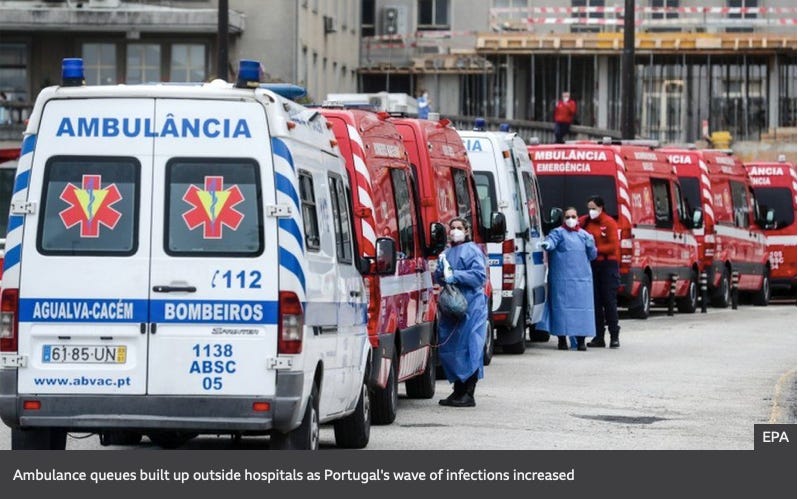Several readers have sent me private emails asking about what the Covid 19 situation is like in Portugal. While my limited Portuguese language abilities make it difficult to track the news on TV, I can share the following.
The Numbers Aren’t Good
In fact, the case rate has been the worst in Europe for several weeks. This is likely a result of the government easing restrictions over the holiday season, as well as the introduction of more infectious strains. The country “locked down” again on January 5th. Though it was announced as a 2-week lockdown it was expected it would be longer. Each week new restrictions are added. At this time, we expect the lockdown to continue until at least March. To assist my American readers in understanding the numbers, I have compared Portugal’s current caseload to the state of Georgia, as it is of similar (population) size.
Attempts to Control the Spread
When we arrived in Portugal the country had instituted curfews. Monday through Friday you had to be home by 2300 (11 pm). On Saturday, Sunday, the day preceding a holiday and on a holiday curfew started at 1300 (1 pm). However, all stores were open and there was indoor dining.
As of today, you may only leave your home if you work in an essential service that cannot operate remotely, to shop for food, to go to a pharmacy, to see a physician or dentist, to walk your dog, or to exercise with one other person from your household. All sports facilities (i.e. tennis clubs, golf courses, etc) are closed. As take-out is the only option for restaurants, UberEats cycles and scooters are everywhere.
By exercise, they mean to run or take a walk. When Denise and I walked into downtown Estoril the other day, we noticed that the entrance to the promenade that runs along the beach to Cascais was blocked. On weekends you typically found hundreds of people taking this lovely walk. Now it along with the park benches is closed.
EU Help
Last week Germany sent physicians along with ventilators, hospital beds, and supplies to help. Austria has also pitched in…in fact 12 Portuguese patients were evacuated by plane to one of their facilities. Like during the peaks we saw in the US, ambulances form a queue at many hospitals.
Challenges
Covid 19 has exposed some of the underlying challenges Portugal faces. The median age of the population is 7 years older than the US. Part of this is because Portuguese life expectancy is longer than the US. But it also because wages in Portugal are not competitive with many other EU countries causing younger people (e.g. nurses) to leave the country.
Another challenge is the pace of life in Portugal. While it is truly a blessing to relax, slow down, and spend 30 minutes talking with someone you just met in line at the supermarket, or in the airport veterinary office … ”amanhã” doesn’t work well in responding to a pandemic. The English language Portugal newspaper we read online often compares Portugal’s pace of vaccination with that of Isreal. Isreal, with 1 million fewer people, has vaccinated far more than Portugal. But as the paper reported Isreal is vaccinating people 24 hours a day.
Vaccinations
As we Zoom with friends at home, we are happily learning that many of them are being vaccinated. They always ask about us. Frankly, we aren’t sure. We have our residency appointments (SEF meetings) on 23 and 24 March. We can then get our national health number. We are assuming that will put us in the system by sometime in April. If Portugal maintains the current schedule, they plan to begin vaccinating those over 65 without underlying health conditions at that time. Until then, we adhere to the lockdown requirements, wear a mask when we leave our home, and a double mask when we enter a store. We also use the hand sanitizer that is positioned at every store entrance before we enter and when we leave. Stay safe!








